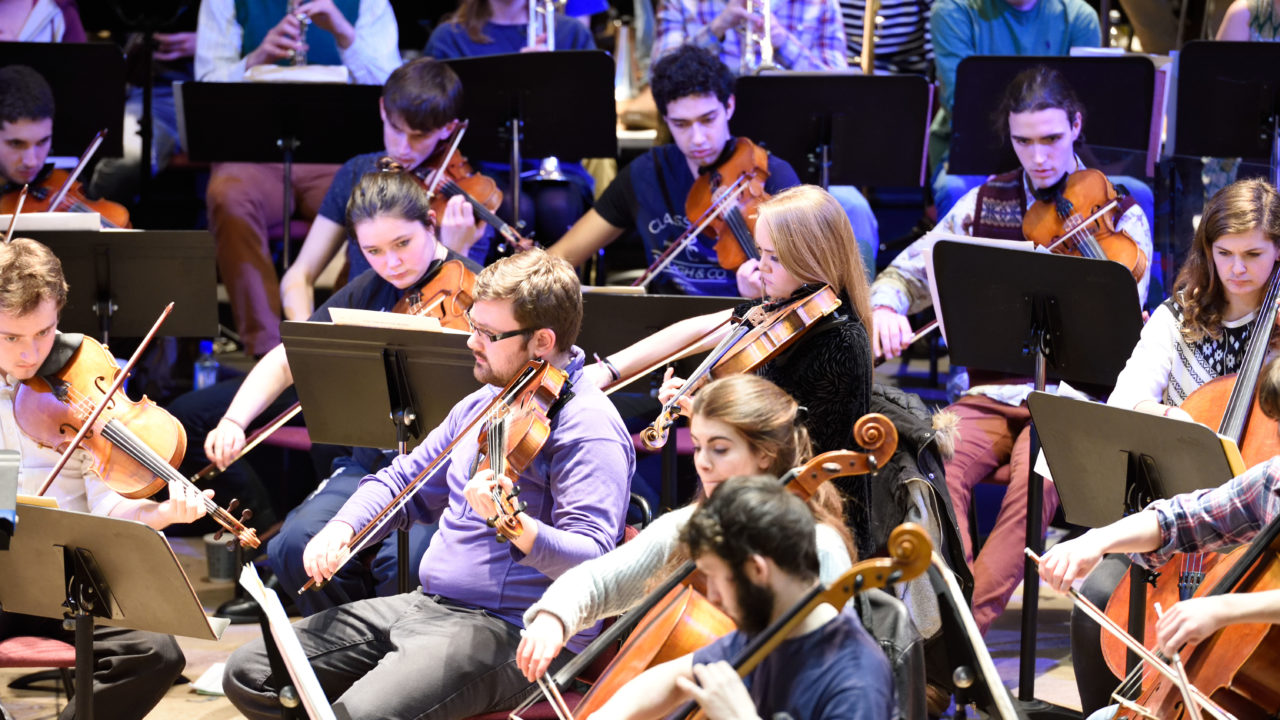Universities and The Arts Dividend
Chief Executive of Arts Council England, Darren Henley, will be delivering the keynote speech at this years' AHUA Autumn Conference in Birmingham. Here he introduces some of the ideas he will be discussing around the role of arts and culture within our universities.

In my experience, universities tend to be run by culturally aware individuals, so there’s often a genuine understanding of art and culture at the top, with a passion for supporting high-quality cultural activities. An exciting cultural environment helps attract students – and the best academic staff.
In my journeys around the country since I joined Arts Council England last year, I’ve heard from university leaders how investment in art and culture is one way in which they can enhance the lives of everyone in their communities – including those who are not directly connected to the university. It’s also a way to attract locally based students, many of whom might not otherwise have considered that university was for them. It’s a topic I discuss in my new book The Arts Dividend: Why Investment in Culture Pays.
Universities are becoming increasingly important cultural brokers in cities up and down the land, with the University of Derby taking over the running of Derby Theatre; Teesside University now operating the Middlesbrough Institute of Modern Art; Coventry University playing a major role in the city’s Music Education Hub; the University of Bradford a significant backer of the city’s burgeoning literature festival; and the University of the West of England now working in close partnership with Bristol’s Arnolfini contemporary art gallery.
In Stoke-on-Trent, Staffordshire University is playing a pivotal role in helping to reinvigorate the city’s infrastructure. The sense of ambition in the city is clear to see from the commitment of Staffordshire University Vice-Chancellor Professor Liz Barnes to building a brand new multi-million pound National Centre for Ceramic Education and Research in the city. As well as researching new technologies, it will train the next generation of skilled workers in the area.
Meanwhile, in Manchester, generations of creative practitioners have studied at the renowned Manchester School of Art and at the equally widely respected Manchester Writing School, both of which are central parts of Manchester Metropolitan University. With the Poet Laureate Carol Ann Duffy, a professor at the University, the Vice-Chancellor Professor Malcolm Press is seizing the opportunity to capitalise on his institution’s international reputation in this area.
The Chairman of the University of Sunderland, internet and software entrepreneur Paul Callaghan, and the Vice-Chancellor Shirley Atkinson, see their university as a driving force behind cultural regeneration in the city. Callaghan believes his university has a catalytic role to play:
“Universities, particularly outside London, have an increasingly important place-shaping role as local authorities’ remit and resources shrink. Sunderland, an Industrial Age powerhouse now redefining itself in the twenty-first century, has just such a university recognising not only the intrinsic value of culture but also the economic and social benefits that it brings to this transformation. Describing itself as ‘life-changing’, Sunderland University understands that lives change not only through our teaching and research but also through exposure to culture and so, by acting as a cultural leader, provider and catalyst, we help Sunderland become a better place for its citizens and our students.’”
Earlier this year, I was at Norwich University of the Arts for the opening night of its brand new East Gallery. The Vice-Chancellor, Professor John Last, told me that universities should have a ‘social contract’ with the places they inhabit – as exemplified by his new gallery:
“We’re all about establishing a creative academic community in which staff and students can make work and research. We’re inevitably part of our extended community, and for Norwich University of the Arts, our role in the city and the east of England helps create a dialogue between the university and external audiences. A key aspect of this for us was the establishment of our new, city centre gallery where contemporary work is shown both to public audiences and our university community. Whilst we get no extra funding for this, we see it as our ‘social contract’ with our region and a vital element of the University’s role as a place maker and shaper.”
A specialist arts university like Norwich University of the Arts may have a specific impetus to engage culturally with the public. But this enthusiasm is not restricted to arts-orientated institutions. Liverpool John Moores University is home to 25,000 students. Its Vice-Chancellor Professor Nigel Weatherill is a mathematician who specialises in aeronautics. During his time in Liverpool, his university has built close links with the city’s arts organisations. Although a scientist, Professor Weatherill is passionate about the importance the arts should play in the lives of the students who study at his university:
“There is much discussion about the skills required from our graduates. We expect them, of course, to be numerate, literate and to have the so-called soft skills, but of great importance is how these skills are applied creatively. Creativity is the real differentiator. Whilst the products of creativity are all around us, how do we teach creativity, how do we nurture creativity within our schools and universities? Art and culture are an articulation of creativity. Hence they must be available in all different forms, to everyone, if we are to have an educational system that not only benefits and enhances the lives of individuals, but produces the skills required to drive forward our economy.”
What role does the arts and the creative industries play within your institution and local region? This is something we will discuss further at the AHUA Annual Conference, Birmingham City University, on Friday 16th September.
The Arts Dividend: Why Investment in Culture Pays is published by Elliott & Thompson.